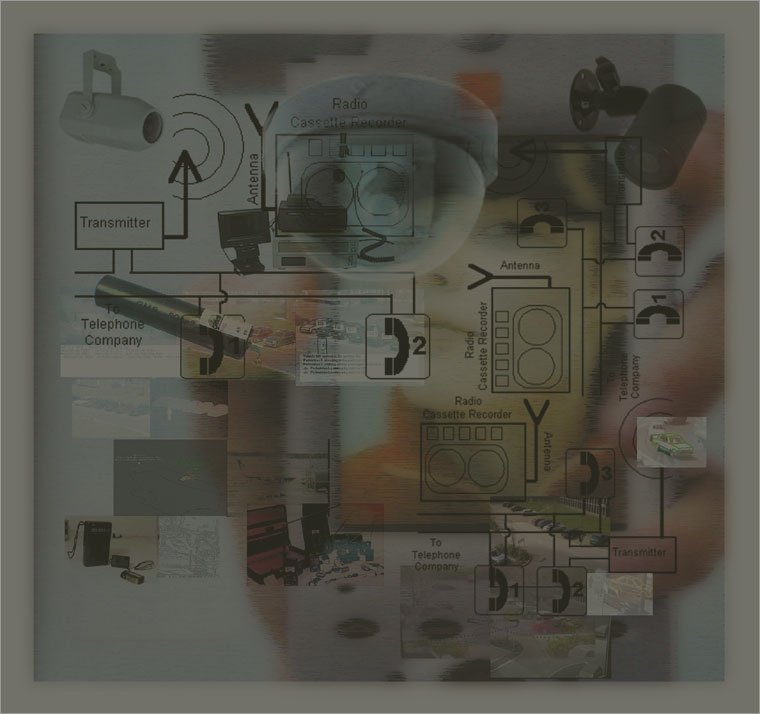 |
 |

"The telescreen received and transmitted simultaneously. Any sound that Winston made (…) would be picked up. (…) There was of course no way of knowing whether you were being watched at any given moment."
(George Orwell, Nineteen Eighty-Four)
Privacy under siege. The revolution in information and communication technologies has stretched the physical boundaries of human curiosity to levels unconceivable a short time ago. As high speed communication networks spread over the globe, the private sphere of the individual is reduced to a precarious existence.
Intelligent public surveillance. Forget the old-time sandwich-munching security guard. In the future, surveillance technologies will be connected to electronic "intelligent agents" and to computerised identification systems such as face or voice recognition or biometrics. The data supplied by cameras and microphones can be sampled against existing databases e.g. of wanted criminals, offenders on probation, or stolen cars. Or against political dissenters or illegal immigrants.
In combination with tracking technologies, such systems can transform large public areas into high security prisons.
Big bosses little helpers. Market demand for technologies for employee surveillance and personal snooping gadgets is growing fast.
These technologies promise employers to get better value for their money. But for employees, they are the electronic reincarnation of the authoritarian 19th century factory floor supervisors described in Charles Dickens' novels.
"The workplace of tomorrow will have many features of the Dickensian workhouse." (Simon Davies, Privacy International)